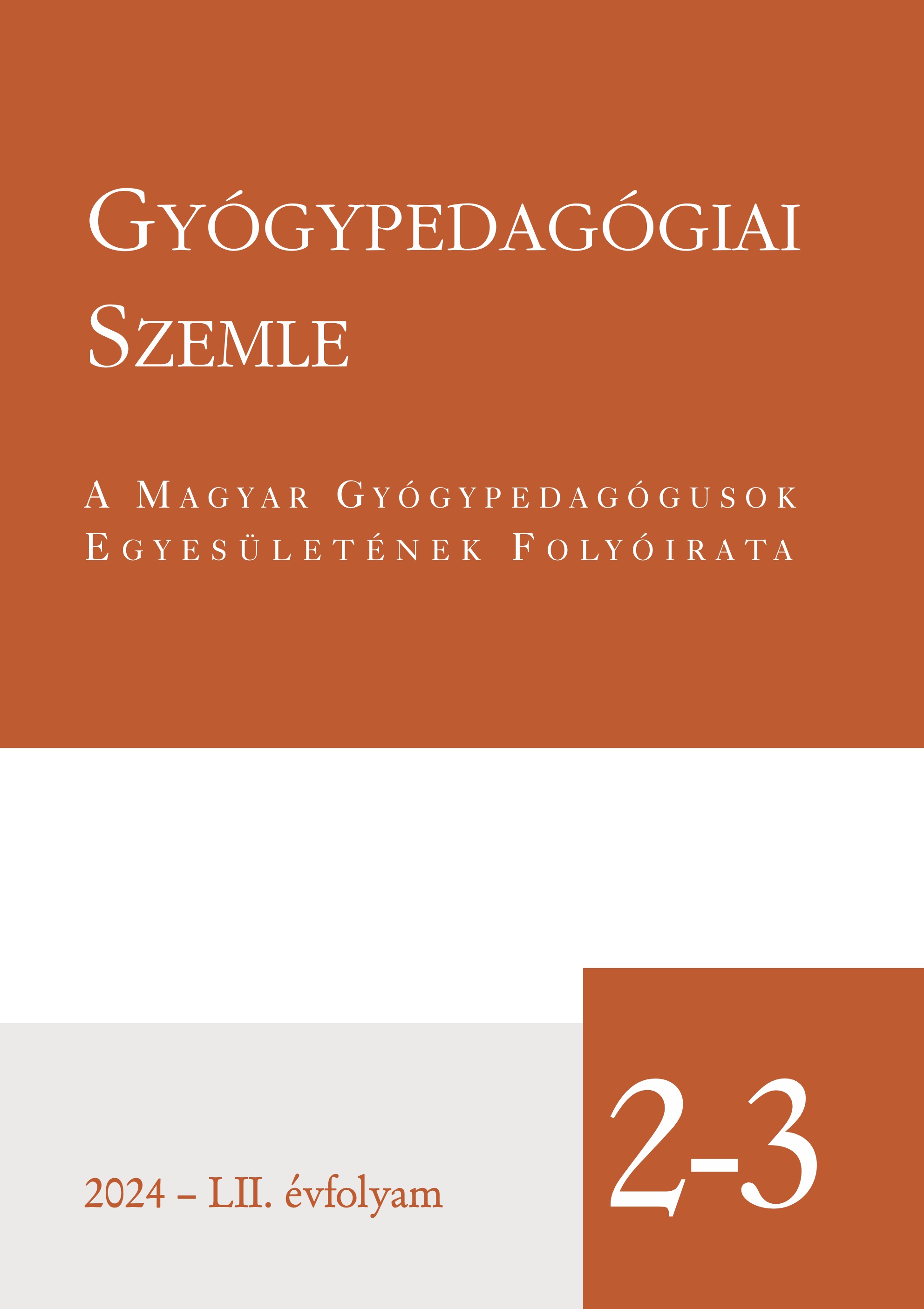Assessing the communication skills of primary school pupils diagnosed with learning difficulties using the Child Communication Questionnaire (CCC-2)
DOI:
https://doi.org/10.52092/gyosze.2024.2-3.4Keywords:
pragmatic competence, learning disability, Children’s Communication Checklist (CCC-2), slow learnersAbstract
Background and Objectives: Although not widely known in the Hungarian practice, we often can assume unrecognized social-communication and pragmatic difficulties behind learning difficulties. Internationally, there are several methods available for assessing pragmatic ability. Among these, we chose one widely used tool in many countries and languages: the CCC-2 (Children’s Communication Checklist; Bishop, 2003). The tool is a parental questionnaire, and its Hungarian adaptation for research purposes has already been developed (Gyermeki Kommunikáció Kérdőív; Kas & Svindt, 2019), although validation has not yet been completed.
Method: In our research, a total of 50 children were examined using the Hungarian adaptation of CCC-2. This included 25 elementary school children with learning difficulties (slow learners) and 25 age-matched control children.
Results: The results indicate that 44% of children with learning difficulties exhibit significant delays compared to the control group, which affects either structural language abilities or pragmatic abilities, and sometimes both.
Conclusions: Our research confirms the importance of screening for social-communication and pragmatic abilities in the case of learning difficulties, as more than a third of these children struggle significantly with these abilities.
Keywords: pragmatic competence; learning disability; Children’s Communication Checklist (CCC-2); slow learners

